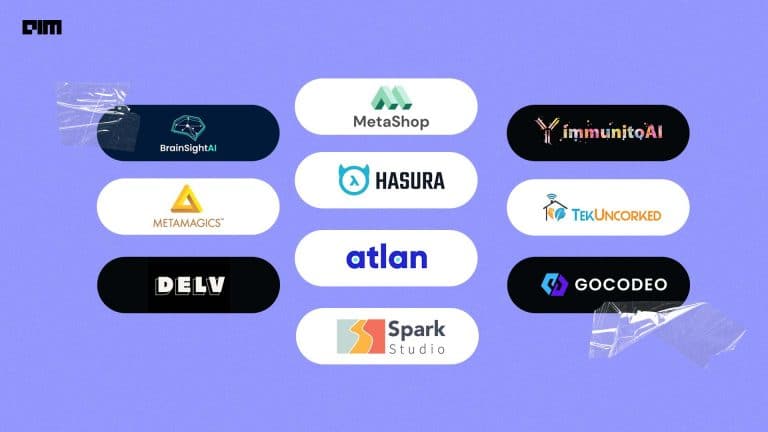The COVID-19 pandemic has drastically deranged the economic activity globally, and the startup ecosystem hasn’t been spared as well. Majority of them have been struggling with their cash inflows as investors have been hesitant in spending their money, which, in turn, has diminished startups’ ability to continue their businesses. In fact, in a recent NASSCOM report, it has been revealed that approximately 3 to 40 percent of the tech startups have temporarily paused their business operations or are scrambling to continue it all together. A lot of this could be attributed to the short runway time that majority of these tech startups come with.
However, this pandemic has been a hopeful prospect for AI startups as the majority of the investors are currently looking to tap into the opportunities this disruption has created. With businesses getting halted amid this lockdown, many of them, from a range of industries, are relying on data science to keep up their relevance in the market. Many of them are also embracing artificial intelligence to automate their processes, cut their costs and stable their finances amid this crisis.
Therefore, experts believe that AI is going to be one of the few sectors that is going to keep gaining traction during the crisis. In fact, in a recent survey, it has been noted that the firms that have been working with artificial intelligence raised $6.4 billion in 2020, Q1, because of investors’ growing interest in spending their money on startups that can prove to be a winner in this uncertain landscape.
As a matter of fact, in recent news, a Bangalore-based location analytics startup — Locale.ai has announced receiving funding, in April 2020, for their innovative analytics products. In another announcement, Biju Jacob, co-founder of a health-tech startup — Healium.ai, stated to the media, “Though we have entered an economic slowdown, we see a surge in digital healthcare and are expecting big investments in this space globally.”
Consequently, as the pandemic has altered the way businesses work, it is imperative for investors to make some fundamental changes in their strategies while investing their money. In this article, we will talk about a few pointers that every investor should look for before plugging in with their investment on AI startups amid this crisis.
Measuring the legitimacy of the AI startup is critical for investors
With the COVID-19 pandemic outbreak, almost all companies across sectors claim to create AI-based technologies just to state their relevance in this ever-evolving technology landscape, and therefore, to invest correctly, venture capitalists and angel investors should filter out companies based on their AI legitimacy.
Considering AI has been undeniably the most favoured technology for companies amid this crisis, it is just to capture the attention of the potential investor, many startups purely deceive about their AI innovations. In fact, in a recent report, it has been revealed that approximately 40% of AI startups, in reality, do not use artificial intelligence in the core of their business process, for making decisions, or in their innovations. The report further stated that the majority of these companies have also been “banal” about their usage of AI in their organisations — 26% of companies only use AI for chatbots, whereas other 21% only use it for cyber-attack protection. Although these applications of chatbots and fraud detection have fundamental involvement in machine learning and rule-based algorithms, these can never be termed as core AI processes or solutions.
With AI being the buzzword of today’s era, a few of the companies also include terms like “AI-powered” to confuse or impress their investors. Case in point: Ara smart toothbrush, developed by a French company — Kolibree claimed to have an embedded AI, but in reality, it works on sensors and data analytics to tell users that they have missed a spot in their mouth.
According to experts, authentic AI-based companies will provide offerings using technologies like natural language processing, computer vision, recommendation engines to name a few, instead of using AI as a plug-play model just to extract business value.
Even worse, when the so-called “AI startups” expect to fund for their fake AI innovations, which in sooth, is carried by human workers. For instance, last year, Facebook had released a virtual assistant — M, which has later been alleged to have human answering queries from customers instead of an AI chatbot. Similar instances happened with companies like X.ai and Clara Labs, that have been using human workers in place of their chatbots for scheduling appointments of their customers.
The entire point of establishing AI and enhancing its capabilities is to omit out a human from tedious jobs and make use of human capabilities for more complex and intricate work. So, lying about AI capabilities in order to gain investments will undermine the technology itself as well as lose the authenticity for the startup amid this crisis.
On the other hand, many software-as-a-service companies are currently working with data analytics for building applications and workflows. However, they have been using the catch-all phrase of ‘artificial intelligence’ for their company. Therefore, for investors, it has become imperative to understand if companies have been doing more than just using data analytics for their business. Alongside they should also understand how companies are training their AI models, as well as the using AI in organisations, which should be designed to reduce human intervention.
Also Read: Will We See A Consolidation Of Ai Startups Eventually?
Other criteria to evaluate deserving AI startups for investments
Majority of the investors aren’t technologically advanced, and therefore, don’t understand the core tech stack of the company that is involved in building applications and workflows. In fact, for the majority of them, a little bit of automation in their organisations can easily pass through as an AI innovation. And that’s why venture capitalists and angel investors should keep a few checks before investing their money in AI startups.
One of the foremost ways is to dig through companies’ employees and their talent pool which would include their chief data scientists. Employees involved in the AI startup needs to have relevant experience in the field of AI before looking in any innovation under the term ‘artificial intelligence.’ This would also include identifying engineering teams in startups and checking their experience, qualification as well as their previous work experience.
Besides, before investing a substantial sum of money amid this crisis, it is critical for VCs to look at the case studies of companies in order to find the authenticity of the AI startup. A used case will give a comprehensive idea of how companies have deployed artificial intelligence in their organisations and how they are leveraging AI to enhance business processes. In point of fact, no company can turn out to be a true AI company overnight; it needs to have a different mindset and ways of doing business. Therefore, VCs need to make sure that startups, as it claims, are bringing business value for their customers by using artificial intelligence.
VCs should also articulate if startups have aimed their innovations to solve the right kind of business problem and the ways companies are aggregating their data to train their niche AI models. This would give an idea to investors how transparent their advanced machines are and how much of human involvement is required to run those machines. The more the human intervention is for organisations, the less is their AI capability.
Before vetting for an AI startup, it is also necessary to understand how advanced machines augment and learn overtime on their own. An actual AI machine would continuously learn from the data gathered and would improve over time in providing necessary insights. Alongside, AI companies can profoundly describe their data usage as well as can share the information on how that has evolved over time to come to a particular decision.
Wrapping up
The pandemic has altered the cash flow in the startup ecosystem; venture capitalists and angel investors are going through major dilemmas in investing their money amid this crisis. Consequently, merely terming companies an “AI startup” wouldn’t be enough in this pandemic landscape to raise funding from investors. Currently, shareholders and capitalists should look for added factors while investing in AI startups so that they can have a better outcome on their investments.



















































































